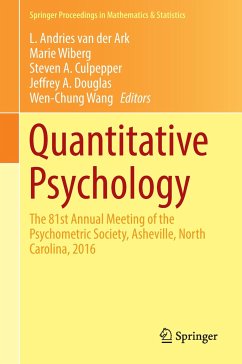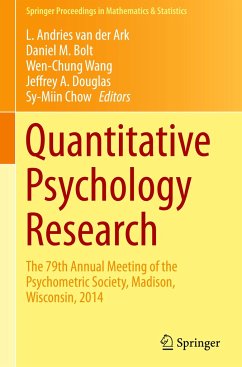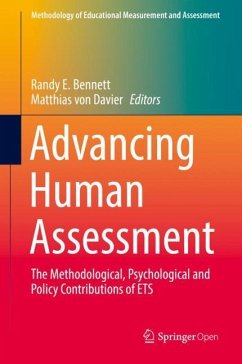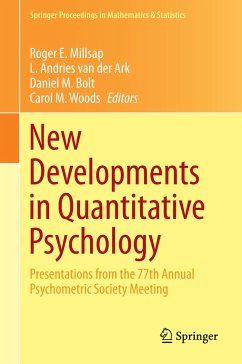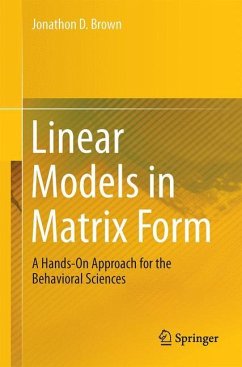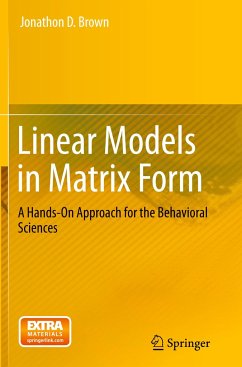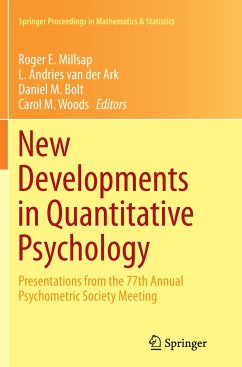
Quantitative Psychology Research
The 80th Annual Meeting of the Psychometric Society, Beijing, 2015
Herausgegeben: van der Ark, L. Andries; Bolt, Daniel M.; Wang, Wen-Chung; Douglas, Jeffrey A.; Wiberg, Marie

PAYBACK Punkte
46 °P sammeln!
The research articles in this volume cover timely quantitative psychology topics, including new methods in item response theory, computerized adaptive testing, cognitive diagnostic modeling, and psychological scaling. Topics within general quantitative methodology include structural equation modeling, factor analysis, causal modeling, mediation, missing data methods, and longitudinal data analysis. These methods will appeal, in particular, to researchers in the social sciences. The 80th annual meeting took place in Beijing, China, between the 12th and 16th of July, 2015. Previous volumes to sh...
The research articles in this volume cover timely quantitative psychology topics, including new methods in item response theory, computerized adaptive testing, cognitive diagnostic modeling, and psychological scaling. Topics within general quantitative methodology include structural equation modeling, factor analysis, causal modeling, mediation, missing data methods, and longitudinal data analysis. These methods will appeal, in particular, to researchers in the social sciences. The 80th annual meeting took place in Beijing, China, between the 12th and 16th of July, 2015. Previous volumes to showcase work from the Psychometric Society's Meeting are New Developments in Quantitative Psychology: Presentations from the 77th Annual Psychometric Society Meeting (Springer, 2013), Quantitative Psychology Research: The 78th Annual Meeting of the Psychometric Society (Springer, 2015), and Quantitative Psychology Research: The 79th Annual Meeting of the Psychometric Society, Wisconsin, USA, 2014 (Springer, 2015).





